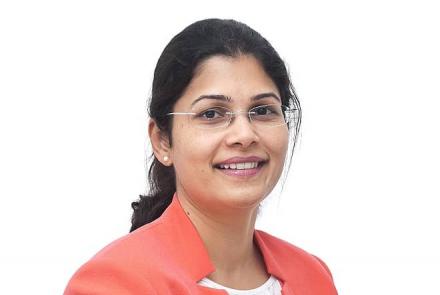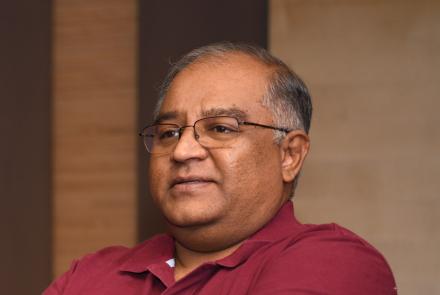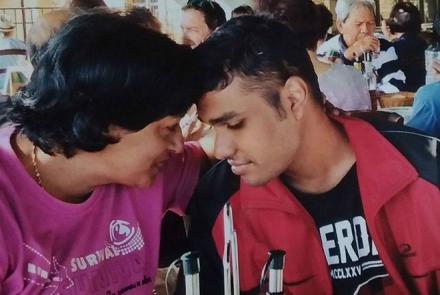Dr Pradnya Gadgil, Consultant Paediatric Neurology and Complex Epilepsy explains the causes and complexities of childhood epilepsy, how it differs from adult epilepsy, the relationship of seizures with sleep and more.
What is childhood epilepsy? How does it differ from epilepsy in adults?
Epilepsy is a tendency to experience recurrent seizures- without a specific trigger. For example, seizures people experience after a head injury or with low sugar/ low calcium (in babies) do not…

प्रमुख न्यूरोलॉजिस्ट डॉ। निर्मल सूर्या दो दशकों से अधिक समय से एपिलेप्सी (मिर्गी रोग) के क्षेत्र में काम कर रहे हैं। इस लेख में उन्होंने एपिलेप्सी और सीज़र के बारे में 10 गलत धारणाएं और सम्बंधित तथ्य साझा करे हैं। डॉ। निर्मल सूर्या इस बात पर भी जोर देते हैं कि समय पर निदान और उपचार हो तो एपिलेप्सी से पीड़ित रोगियों में से दो-तिहाई रोगियों के सीज़र पूरी तरह से नियंत्रित रह सकते हैं।
- गलत धारणा : एपिलेप्सी (मिर्गी, अपस्मार) छूत की बीमारी है और छूने और खांसने से फैलती है।
तथ्य : एपिलेप्सी मस्तिष्क की एक बीमारी है। यह मस्तिष्क में असामान्य अतिसक्रियता या अचानक इलेक्ट्रिक गतिविधि बढ़ने के कारण होती है। यह छूत की बीमारी नहीं है और छूने, खांसने या भोजन साझा करने से नहीं लगती है।
- गलत धारणा : प्याज या किसी धातु आदि को सूँघने से एपिलेप्सी का दौरा रुक सकता है
तथ्य : नहीं। एपिलेप्सी के दौरे के समय मरीज बेहोश होता है, इसलिए नाक पर प्याज या जूता या कोई धातु (मेटल) रखने से कोई फर्क नहीं पड़ेगा । ये तर्कहीन मान्यताएं हैं। इस तरह की गतिविधियों से बिल्कुल भी मदद नहीं मिलेगी।
- गलत धारणा : जब किसी को सीज़र होता है तब आपको उनके मुंह में जबरदस्ती कुछ डालना चाहिए।
तथ्य : बिल्कुल नहीं! ऐसा करने से आप व्यक्ति के दांतों को नुकसान पहुंचा सकते हैं या जबड़े का जोड़ उखाड़ सकते हैं (स्थानच्युति, डिसलोकेट) । या रोगी के दांत जकड़े होने की वजह से या काटने की वजह से आपकी उँगलियों को चोट लग सकती हैं। यदि व्यक्ति का मुंह खुला है, तो दोनों साइड के दांतों के बीच कोई नरम, सूती चीज़ रखें, जैसे कि रुमाल। पानी या किसी अन्य तरल पदार्थ को डालने की कोशिश न करें क्योंकि यह फेफड़ों में जा सकता है और व्यक्ति का दम घुट सकता है और उनकी मृत्यु हो सकती है।
- गलत धारणा : आप सीज़र के दौरान अपनी जीभ को निगल सकते हैं।
तथ्य : अपनी जीभ को निगलना शारीरिक रूप से असंभव है।
- गलत धारणा : एपिलेप्सी से पीड़ित लोग मानसिक रूप से बीमार या भावनात्मक रूप से अस्थिर होते हैं।
तथ्य : जैसा कि पहले ही उल्लेख किया गया है, एपिलेप्सी मस्तिष्क की बीमारी है। यह एक मानसिक रोग या मनोविकार नहीं है। मस्तिष्क के विभिन्न भाग अलग-अलग व्यवहारों, भावनाओं और स्मृति को नियंत्रित करते हैं। यदि इनमें से किसी भी क्षेत्र में अतिसक्रीयता होती है (फिट होता है), तो रोगी कुछ सेकंड या मिनट के लिए (यानि कि सीज़र के समय) असामान्य व्यवहार कर सकते हैं। इस असामान्य विद्युत गतिविधि के बंद होने के बाद वे बिल्कुल सामान्य हो जाते हैं। इसका मतलब है कि उनका यह असामान्य व्यवहार सिर्फ उस घटना के समय और सिर्फ थोड़ी देर के लिए होता है (यह एपिसोडिक, आवधिक और अस्थायी है) - रोगी को ये दौरे याद भी नहीं रहते हैं।
- गलत धारणा : एपिलेप्सी से पीड़ित लोग नौकरी या व्यवसाय नहीं कर सकते, स्कूल में पढ़ाई में उत्तम नहीं हो सकते, बच्चे नहीं पैदा कर सकते, और सामान्य जीवन नहीं जी सकते हैं।
तथ्य : इसका जवाब पाने के लिए ऐसे महान लोगों के बारे में जानें जिन्हें एपिलेप्सी थी पर जो अपने कार्यक्षेत्र में उत्तम थे -उदाहरण हैं अल्फ्रेड नोबेल, न्यूटन, और सिकंदर। आधुनिक समय में उदाहरण के तौर पर क्रिकेट के दिग्गज जॉन्टी रोड्स का नाम याद आता है। तो यह आशंका ही क्यूं पैदा हो कि एपिलेप्सी के रोगी अपने जीवन में सफल नहीं हो सकते! एपिलेप्सी एक रोग है जिसका उपचार है और इसे नियंत्रित किया जा सकता है। इसलिए एपिलेप्सी के रोगी एक सम्पूर्ण, सामान्य जीवन जी सकते हैं। ऐसा कई उदाहरण हैं जहां एपिलेप्सी के रोगियों ने अनेक क्षेत्रों में महानता हासिल की है । यहाँ एपिलेप्सी वाले केवल कुछ दिग्गज व्यक्तियों के नाम पेश हैं - नेपोलियन, सिकंदर (अलेक्जेंडर दी ग्रेट), लॉर्ड बायरन, विंसेंट वान गॉग, थियोडोर रूजवेल्ट, लुईस कैरोल, चार्ल्स डिकेंस। इससे यह स्पष्ट रूप से साबित होता है कि ऊंची आकांक्षा रखने में और सफलता प्राप्त करने में एपिलेप्सी होना कोई रुकावट नहीं होनी चाहिए।यह भी पढ़ें : Ishira's personal account with epilepsy
- गलत धारणा : एपिलेप्सी हो तो व्यक्ति शादी के लिए अयोग्य हैं।
तथ्य : यह भारत में सबसे बड़े और सबसे परेशान करने वाली गलत धारणाओं में से एक है। एपिलेप्सी के साथ बहुत बड़ा कलंक जुड़ा हुआ है, और इस का रोगियों पर बहुत असर होता है, विशेष रूप से महिलाओं पर। उन्हें शादी के संदर्भ में अपमानित और बहिष्कृत करा जाता है (कोई उनसे शादी करने को तैयार नहीं होता) - और यह समस्या अकसर महिलाएं अपने एपिलेप्सी के निदान को छिपाने के लिए मजबूर करती है। सच तो यह है कि एपिलेप्सी के रोगी सामान्य जीवन जी सकते हैं, शादी कर सकते हैं और बच्चे पैदा कर सकते हैं। एपिलेप्सी के शिकार 98 प्रतिशत रोगियों में उनके रोग की कोई आनुवंशिक पृष्ठभूमि नहीं होती है और इसलिए उनके बच्चों को उनसे यह रोग नहीं मिलेगा।
- गलत धारणा : एपिलेप्सी भूत चढ़ने के कारण या देवी-देवता के प्रकोप से होता है
तथ्य : प्राचीन काल से, एपिलेप्सी को धर्म से जोड़ा गया है और यह माना गया है कि एपिलेप्सी भूत-प्रेत चढ़ने की वजह से होता है या देवी-देवता का प्रकोप है। यह पूरी तरह से असत्य, निराधार और भ्रामक है। एपिलेप्सी के क्षेत्र में कार्यरत संगठन लोगों को इस बारे में शिक्षित करने के लिए कड़ी मेहनत कर रहे हैं कि एपिलेप्सी एक चिकित्सीय स्थिति है , यह मस्तिष्क का एक विकार जिस के कारण रोगियों को बार-बार सीज़र होते हैं। इस का धर्म से या जादू-टोने या भूत-प्रेत से कोई सम्बन्ध नहीं है। इसमें भूत चढ़ा है, यह गलत धारणा इसलिए शुरू हुई क्योंकि प्राचीन काल में एपिलेप्सी को मस्तिष्क के विकार के रूप में नहीं पहचाना गया था। इस रोग की सही वजह न जानने के कारण इसे हिस्टीरिया या मनोवैज्ञानिक समस्या भी माना गया था, जो गलत है। हमें इस गलत धारणा को पूरी तरह त्यागना होगा। एपिलेप्सी मस्तिष्क की एक बीमारी है और इसका उपचार हो सकता है।
- गलत धारणा : एपिलेप्सी से पीड़ित लोगों के इलाज के लिए पूजा-पाठ, आस्था चिकित्सा (फेथ हीलर) या जादू-टोना आवश्यक है।
तथ्य : एपिलेप्सी मस्तिष्क की बीमारी है। इसलिए, इस का इलाज न्यूरोलॉजिस्ट, एपिलेप्टोलॉजिस्ट, जेनेरल चिकित्सकों और बाल रोग विशेषज्ञों द्वारा किया जाना चाहिए।
- गलत धारणा : एपिलेप्सी के इलाज बहुत ही कम रोगियों में काम करता है।
तथ्य : एपिलेप्सी का इलाज या तो चिकित्सा द्वारा या सर्जरी द्वारा हो सकता है। सही खुराक पर सही दवा लेने से एपिलेप्सी से पीड़ित लगभग दो-तिहाई लोग पूरी तरह से अपने सीज़र को नियंत्रित कर सकते हैं। शुरू से ही इलाज हो तो एक उचित दवा से लगभग 70 प्रतिशत रोगियों का इलाज किया जा सकता है। अन्य 15 प्रतिशत मामलों में मस्तिष्क की (एपिलेप्सी के लिए) सर्जरी, विशेष आहार, तंत्रिका को उत्तेजित करने वाले इलाज (नर्व स्टिमुलैशन) से या अन्य उपचार से कारगर इलाज किया जा सकता है। 10-15 प्रतिशत रोगी ऐसे हो सकते हैं जिन में दवा द्वारा सीज़र का नियंत्रण नहीं हो पाता - इन में अन्य तरह के उपचार की या अनेक प्रकार के उपचार की आवश्यकता हो सकती है। लेकिन यह याद रखना जरूरी है कि आजकल एपिलेप्सी के लगभग 85 प्रतिशत रोगियों का उचित इलाज एपिलेप्सी केंद्र में किया जा सकता है।
Changed
05/Feb/2021
Community
Condition













